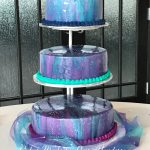Enhance Your Reflection With Exceptional Mirror Coatings: Unlock The Alluring Power Of Mirror Coatings Now!
Mirror Coatings: Enhancing Reflections with Precision
Greetings, Readers! Today, we dive into the fascinating world of mirror coatings. From enhancing the reflective properties of mirrors to improving durability and reducing glare, mirror coatings have become an essential aspect of various industries. In this article, we will explore the ins and outs of mirror coatings, their benefits and limitations, and answer some frequently asked questions. So, let’s begin our journey!
Introduction
1 Picture Gallery: Enhance Your Reflection With Exceptional Mirror Coatings: Unlock The Alluring Power Of Mirror Coatings Now!

Mirrors have been a part of human civilization for centuries, serving as both functional and decorative elements. However, with advancements in technology, mirror coatings have evolved to offer more than just a clear reflection. These specialized coatings are applied to the surface of mirrors to enhance their optical properties and cater to specific needs. Let’s delve deeper into the world of mirror coatings.
What are Mirror Coatings?

Image Source: jenoptik.com
Mirror coatings are thin layers of materials applied to the surface of mirrors to alter their reflective properties. These coatings are typically made of metal or dielectric materials and are designed to enhance reflectivity, durability, and other optical characteristics of mirrors.
Who Uses Mirror Coatings?
Mirror coatings find applications in various industries and fields. They are extensively used in the automotive industry for rear-view and side mirrors to improve visibility and reduce glare. Additionally, they are crucial components in scientific instruments, telescopes, microscopes, and optical devices where precise reflections are essential for accurate measurements and observations.
When Were Mirror Coatings Invented?
The invention of mirror coatings can be traced back to the early 20th century. In 1930, Dr. Alexander Smakula developed the first thin-film mirror coating using vapor deposition techniques. This breakthrough paved the way for the mass production of high-quality, durable mirrors with enhanced optical properties.
Where are Mirror Coatings Used?
Mirror coatings have a wide range of applications across various industries and settings. They are commonly found in residential and commercial settings for mirrors used in bathrooms, gyms, retail stores, and dance studios. Moreover, they play a crucial role in the entertainment industry, ensuring crystal-clear reflections in theaters, movie sets, and concert halls.
Why are Mirror Coatings Important?
Mirror coatings offer several advantages that make them indispensable in various applications. Firstly, they significantly enhance the reflectivity of mirrors, allowing for clearer and sharper images. Secondly, these coatings can minimize glare, making them ideal for places where excessive light reflection can be a hindrance. Additionally, mirror coatings can improve the durability and lifespan of mirrors by protecting them from scratches, corrosion, and environmental factors.
How are Mirror Coatings Applied?
Mirror coatings are typically applied using advanced techniques such as physical vapor deposition (PVD) or chemical vapor deposition (CVD). These methods involve depositing a thin layer of the desired coating material onto the mirror surface in a controlled environment. The thickness and composition of the coating can be precisely controlled to achieve the desired optical properties.
Advantages and Disadvantages of Mirror Coatings
Like any other technology, mirror coatings come with their own set of advantages and disadvantages. Let’s explore some of them:
Advantages of Mirror Coatings
1. Enhanced Reflectivity: Mirror coatings significantly improve the reflectivity of mirrors, resulting in clearer and more vibrant reflections.
2. Reduced Glare: These coatings can minimize glare, making them ideal for environments where excessive light reflection can be distracting or dangerous.
3. Increased Durability: Mirror coatings protect mirrors from scratches, corrosion, and environmental factors, ensuring a longer lifespan.
4. Customizability: Mirror coatings can be tailored to meet specific needs, such as anti-reflective coatings for optical instruments or one-way mirrors for surveillance purposes.
5. Energy Efficiency: Certain mirror coatings, such as low-emissivity coatings, can improve energy efficiency by reducing heat transfer through windows.
Disadvantages of Mirror Coatings
1. Cost: Mirror coatings can add to the overall cost of mirrors, especially when specialized coatings are required.
2. Complexity: Applying mirror coatings requires specialized equipment and expertise, making the process complex and potentially expensive.
3. Maintenance: While mirror coatings enhance durability, they may still require regular maintenance to ensure their longevity.
4. Limited Resistance: Mirror coatings may not be fully resistant to certain chemicals or harsh cleaning agents, requiring extra caution during cleaning.
5. Fragility: Despite their protective properties, mirror coatings can be susceptible to damage if mishandled or exposed to extreme conditions.
Frequently Asked Questions (FAQ)
1. Can mirror coatings be applied to existing mirrors?
Yes, mirror coatings can be applied to existing mirrors, provided they are in good condition and clean.
2. Are mirror coatings permanent?
Mirror coatings are typically permanent and do not wear off with regular use or cleaning.
3. Can mirror coatings be removed?
Yes, mirror coatings can be removed using specialized chemicals or techniques, but this may damage the underlying mirror surface.
4. Do mirror coatings affect the clarity of reflections?
No, mirror coatings are designed to enhance the reflectivity and clarity of reflections.
5. Can mirror coatings be applied to curved mirrors?
Yes, mirror coatings can be applied to curved mirrors, although the process may require additional expertise and precision.
Conclusion
In conclusion, mirror coatings offer a world of possibilities by enhancing the reflective properties of mirrors. Whether it’s for improving visibility on the road, capturing breathtaking images of distant galaxies, or simply admiring your reflection in a well-lit room, mirror coatings play a crucial role in our daily lives. With their ability to enhance reflectivity, reduce glare, and improve durability, mirror coatings have become an essential component in numerous industries and settings. So, why settle for an ordinary mirror when you can experience the wonders of mirror coatings!
Final Remarks
Before we part ways, it’s important to note that mirror coatings should be handled with care to ensure their longevity. Clean them gently using non-abrasive materials and avoid using harsh chemicals that may damage the coating. Additionally, consult a professional for mirror coating applications or removals to guarantee optimal results. Embrace the transformative power of mirror coatings and unlock a world of enhanced reflections!
This post topic: Mirror



